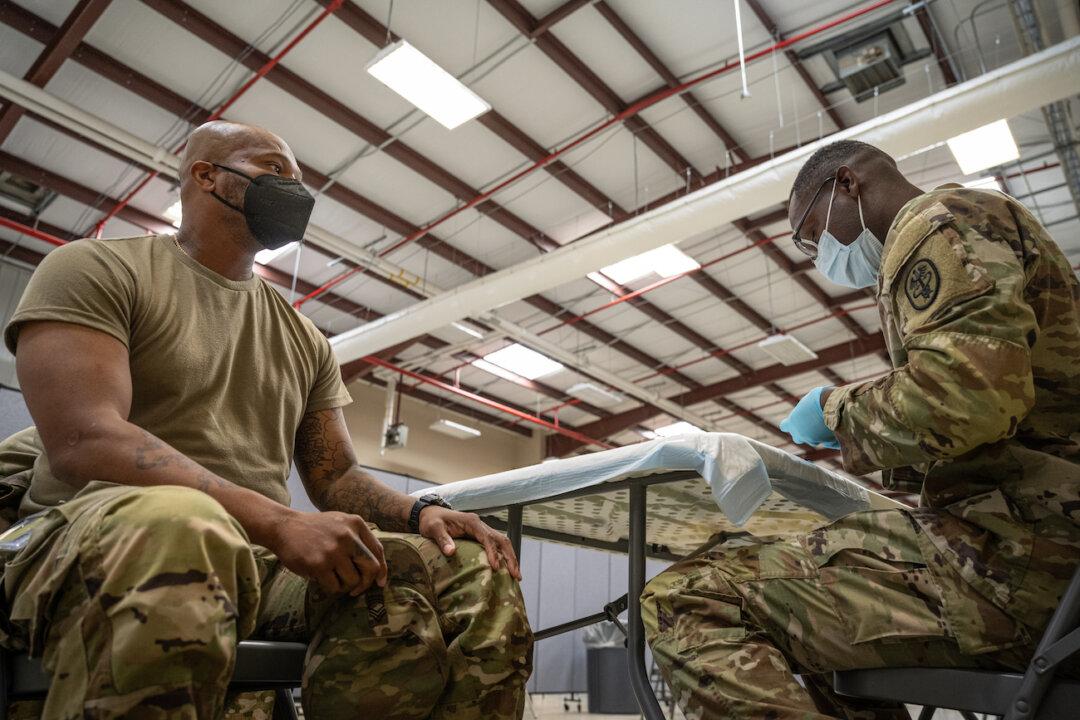The Department of Defense indicated on Tuesday it is not going to consider backpay for troops discharged due to having refused to take a COVID-19 vaccine amid mandates that were recently lifted.
At a press briefing, Pentagon spokesman Brig. Gen. Patrick Ryder was asked by a reporter whether the Pentagon was still “actively exploring” providing backpay or reinstatement to the separated service members.




